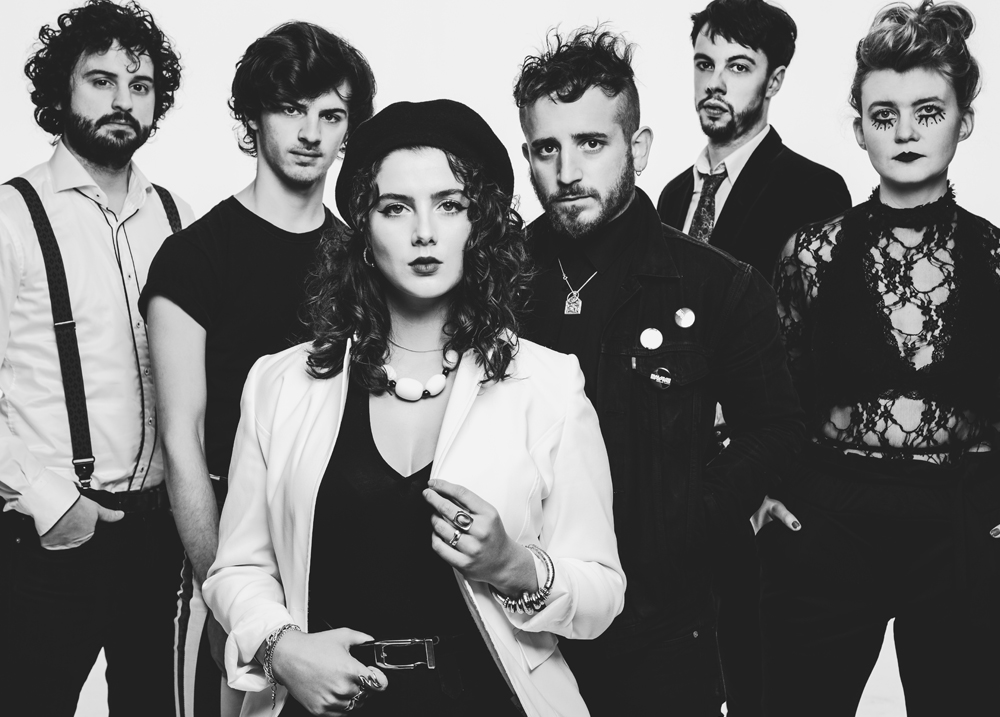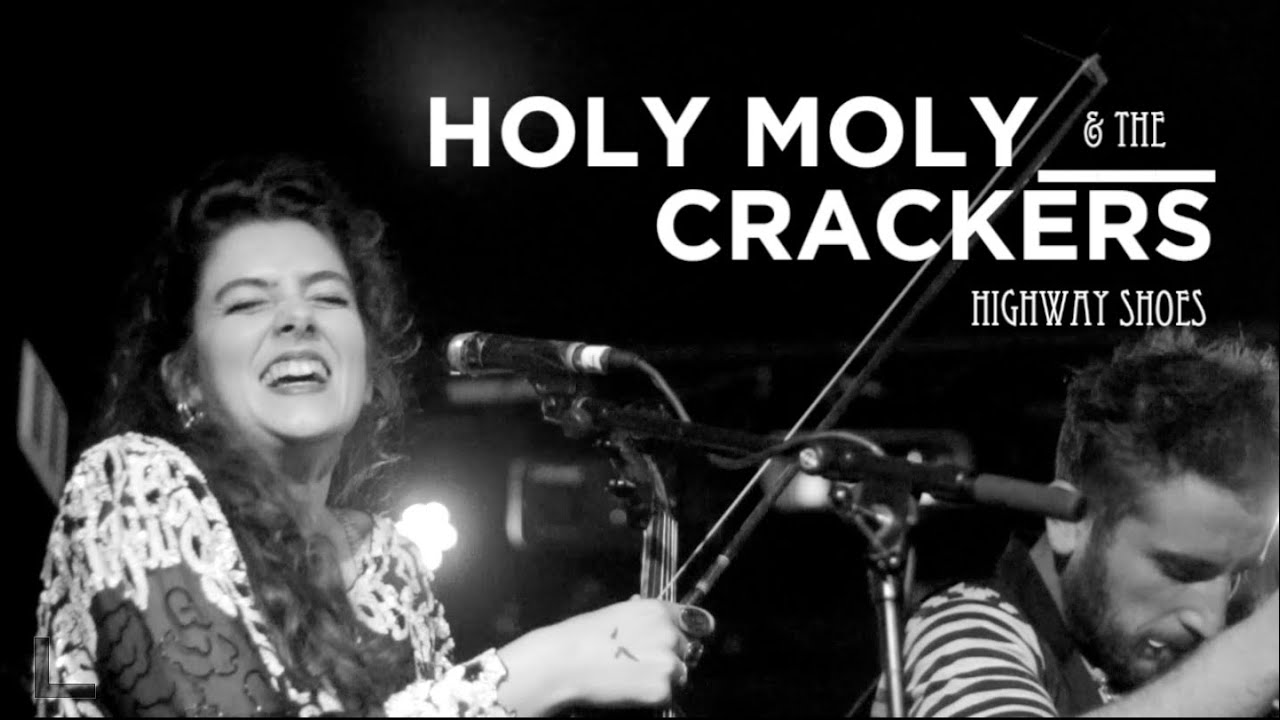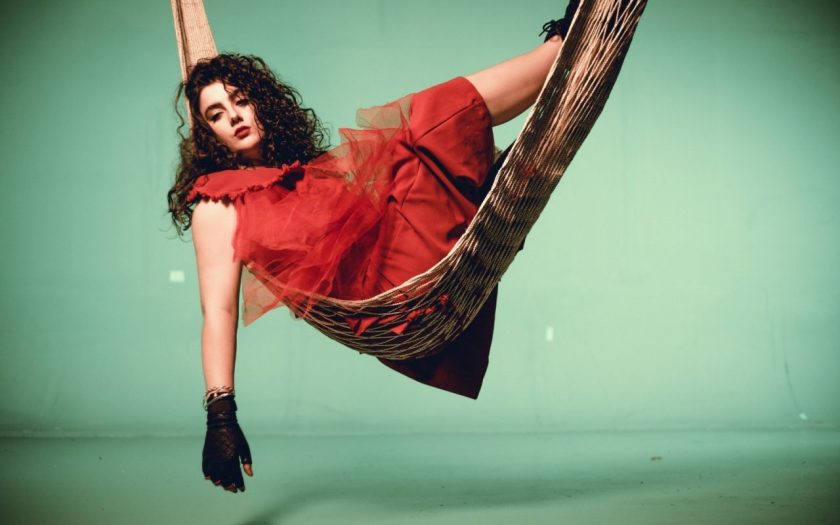Ruth Patterson is the Lead Singer with ‘Holy Moly & The Crackers’
Ruth sits on our panel of 12 judges along with Stuart Bensusan, Marsha de Cordova MP, Jeff Dodds, Vicky Foxcroft MP, Dame Evelyn Glennie, Eileen Grubba, Kamran Mallick, Martyn Sibley, Angel Sinclair; Justin Tomlinson MP and Keely Cat Wells.
She recently spoke exclusively to Disability Talk about her mental and physical health issues. She was frank and very open with the challenges she has faced during her life.

We asked Ruth a number of questions about herself and her music and her journey living with a lifelong illness.
Q) When did you realise that you had mental health issues?
“Mental illness is quite prevalent in my family so it’s always been a big topic of discussion. It is something that we’ve been able to talk about freely and without any shame which is something that I feel very fortunate for. I first noticed I had a tendency towards mental ill-health when I was about 12. It was when I was 15 and diagnosed with a physical disability, Juvenile Idiopathic Arthritis, that I began seeing clinical psychologists and I continued this therapy on and off for around seven years.
Being diagnosed with a lifelong illness as a teenager and suddenly being unable to do all the things I could before, was a lot to deal with but especially as I had a tendency towards anxiety and depression. I have always felt that my grip on reality is a lot more tenuous than most and I have struggled with panic attacks and paranoia and the stress caused by this has had a negative impact on physical health, at times, as well.”

Q) How do you deal with it?
“I have seen several clinical psychologists and the talking therapy involved with that was, at the time, very difficult as it forced me to face some very challenging emotions and life-long changes head-on but I’m so pleased that I went through it at an early age and continued it into my twenties. It helped me cope with further changes, to deal with further problems and and further understand how my brain works and how to keep it healthy. When I was 21, I was diagnosed with Ehler’s Danlos Syndrome which causes all my joints to dislocate and I have been in a wheelchair ever since.
That was another big life adjustment to process and it took me a lot of years to come to terms with. I’m even now more dependent on other people and there are certain things I’ll never be able to do again but having this good basis of understanding myself and knowing that I do process things a little differently is really helpful because I can try to be kind to myself and give myself time to adjust to new challenges and focus on looking after my mind. I can identify when I am not coping and get help.”

Q) Do you find your music helps?
“I have been playing music since I was two years old and I have always had an almost spiritual connection with music. It’s something that I really can’t live without and being able to write my own music is definitely a form of therapy for me. It’s a tool to process my emotions, whatever I’m going through; to try and deal with my feelings in a positive way. Just the other day I was at a really low, anxious point and I immediately put on some music. It’s instinctive what I need to listen to or play at different moments. For me, strings feel like emotions so if I’m feeling lost in sadness or deeply anxious and really want to face it, I’ll always put on some really powerful string arrangements and just curl up in a ball and let myself feel sad for a while.
The main thing I realised when I was going through therapy was that I constantly had a need to be strong and for everybody to be proud of me for coping with everything in this really solid way and it just wasn’t what I was feeling like on the inside.”

“I actually think a lot of disabled people feel like that. We’re held up as examples of resilience and inspiration like we’re somehow automatically wise and indestructible because we’ve faced challenges non-disabled people can’t understand. And, yes, I do feel powerful as a disabled woman that I still face each day in pain, dependent upon mobility aids, reliant on other people to function and like so many others, just get through it – but it doesn’t mean I’m emotionally bullet proof. In fact, I struggle way more than people realise. That’s why I’ve started talking about it more publicly as I know there are so many other people unravelling in silence, especially now during lockdown and I think it is so important that we can connect and understand that we all suffer. It’s a very powerful thing to know that you’re not alone and to share coping mechanisms.”

Q) Do your health issues impact on your ability to perform?
“Being a wheelchair user, touring isn’t easy as there are so many barriers that I face on a day-to-day basis which impacts on my ability to perform. This causes an enormous pressure on my mental health as well as I can feel like a burden. When you have to be carried around, rely on other people to function, make sure you’re safe, help on and off stage etc. it can really wear you down as a person and then to have to do a performance on top of that where you’re really bearing your sole to the whole audience – it’s tough! There have been moments when it has been really tempting to give it up because of the enormous pressures and at times I have had panic attacks on tour which is obviously really scary for the rest of the band and I guess being anxious can create a really negative vibe for my band members which I’m really aware of just adding to the viscous cycle. But doing what I love keeps me going and as soon as I get on stage and begin performing, see the crowd smile, singing along and having a good time, it makes it all worth it and i could never give it up.”

Q) How do you see your future?
“I see my future composing and performing forever! I can’t imagine a life where I don’t write music and perform it live so that’s what I’ll be doing till the end of time. I would however like to see more support for musicians to enable us to look after our mental health and be able to support one another and talk about what we’re going through. There aren’t many jobs that cause you to be away from home for extended periods of time in constantly changing surroundings, exhausting late nights, away from loved ones, often earning a very low wage with little to no stability. That takes its toll on any performer and I think the added pressure of having to write music that you hope will be successful and then adding the relatively new pressures of social media of how to present an appearance, always saying the right thing, doing the right thing and continuously entertaining – well it really can mess with your mind and we all need to be able to take a step back from time to time and figure out what’s important.”

Q) What are your general thoughts regarding mental health?
“I have been very fortunate to be brought up in a family where I have always felt open to talk about my mental health but I do think that this is quite unique. The more that we talk to each other and the more we discuss our mental health, the easier it will be to get the help and support we need. This can come in many different ways from being as simple as speaking to a loved one, close friend or family member about what we’re going through and then seeking advice from healthcare professionals about what the next step might be.
No one should have to feel like they need to reach rock bottom to take action and ask for help. I would like to see more free support and more people talking about these kind of issues in daily life just catching up and being honest about how we all feel, making sure not to bottles anything up. I know from experience it’s just dangerous and it takes far longer to deal with problems that have spent a long time being buried than it is to deal with problems that have spent a long time being buried than it is to deal with problems as they surface. I want to see this stuff becoming ‘normal’ and less taboo.”

LISTEN TO RUTH’S NEW SINGLE ‘SINK OR SWIM’

